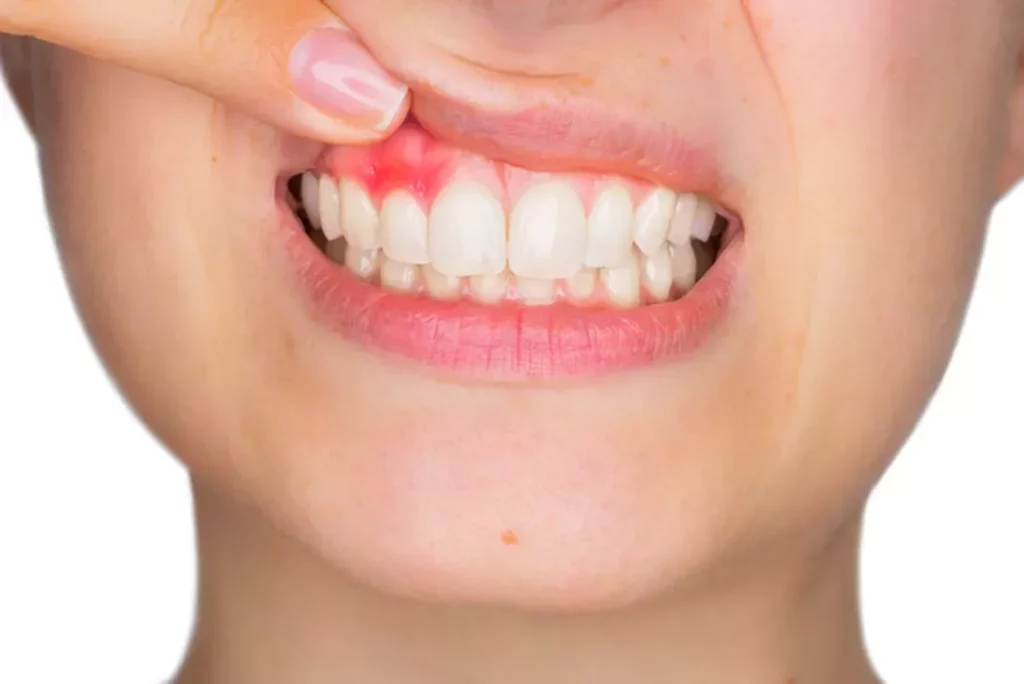HEART DISEASE
Several studies have shown that periodontal disease is associated with heart disease. Research has indicated that periodontal disease may increase the risk of heart disease.
Scientists believe that inflammation caused by periodontal disease may be responsible for the association.
Periodontal disease can also exacerbate existing heart conditions. Patients at risk for infective endocarditis may require antibiotics prior to dental procedures. Your periodontist and cardiologist will be able to determine if your heart condition requires use of antibiotics prior to dental procedures.
STROKE
Additional studies have pointed to a relationship between periodontal disease and stroke. In one study that looked at the causal relationship of oral infection as a risk factor for stroke, people diagnosed with acute cerebrovascular ischemia were found more likely to have an oral infection when compared to those in the cont
GUM DISEASE RISK FACTORS
The main cause of periodontal (gum) disease is plaque, but other factors affect the health of your gums.
AGE
Studies indicate that older people have the highest rates of periodontal disease. Data from the Centers for Disease Control and Prevention indicates that over 70% of Americans 65 and older have periodontitis.
SMOKING/TOBACCO USE
Tobacco use is linked with many serious illnesses such as cancer, lung disease and heart disease, as well as numerous other health problems. Tobacco users also are at increased risk for periodontal disease. Studies have shown that tobacco use may be one of the most significant risk factors in the development and progression of periodontal disease.
GENETICS
Research has indicated that some people may be genetically susceptible to gum disease. Despite aggressive oral care habits, these people may be more likely to develop periodontal disease. Identifying these people with a genetic test before they even show signs of the disease and getting them into early intervention treatment may help them keep their teeth for a lifetime.
STRESS
Stress is linked to many serious conditions such as hypertension, cancer, and numerous other health problems. Stress also is a risk factor for periodontal disease. Research demonstrates that stress can make it more difficult for the body to fight off infection, including periodontal diseases.
MEDICATIONS
Some drugs, such as oral contraceptives, anti-depressants, and certain heart medicines, can affect your oral health. Just as you notify your pharmacist and other health care providers of all medicines you are taking and any changes in your overall health, you should also inform your dental care provider.
CLENCHING OR GRINDING YOUR TEETH
Clenching or grinding your teeth can put excess force on the supporting tissues of the teeth and could speed up the rate at which these periodontal tissues are destroyed.
OTHER SYSTEMIC DISEASES
Other systemic diseases that interfere with the body’s inflammatory system may worsen the condition of the gums. These include cardiovascular disease, diabetes, and rheumatoid arthritis.
POOR NUTRITION AND OBESITY
A diet low in important nutrients can compromise the body’s immune system and make it harder for the body to fight off infection. Because periodontal disease begins as an infection, poor nutrition can worsen the condition of your gums. In addition, research has shown that obesity may increase the risk of periodontal disease.
GUM DISEASE AND OTHER SYSTEMIC DISEASES
OSTEOPOROSIS
Researchers have suggested that a link between osteoporosis and bone loss in the jaw. Studies suggest that osteoporosis may lead to tooth loss because the density of the bone that supports the teeth may be decreased, which means the teeth no longer have a solid foundation.
RESPIRATORY DISEASE
Research has found that bacteria that grow in the oral cavity can be aspirated into the lungs to cause respiratory diseases such as pneumonia, especially in people with periodontal disease.
CANCER
Researchers found that men with gum disease were 49% more likely to develop kidney cancer, 54% more likely to develop pancreatic cancer, and 30% more likely to develop blood cancers.
PREVENTING PERIODONTAL DISEASE
Periodontal disease, also known as gum disease, is caused when bacteria in plaque (a sticky, colorless film that forms in the mouth) builds up between the gums and teeth. When the bacteria begin to grow, the gums surrounding the tooth can become inflamed.

